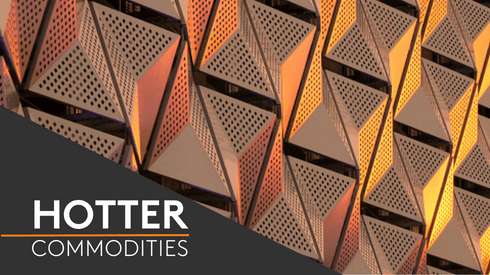At 17:18 London time on Thursday, 50 lots of LME cash-March spreads traded in a $2.50 per tonne contango on the exchange’s Select platform, after starting the day in a $4 per tonne backwardation.
The LME’s cash-3 month spread backwardation also contracted on Thursday, to $16 per tonne from $29 per tonne.
Thursday’s delivery, which mostly comprised 32,500 tonnes deposited in Rotterdam, came after a series of major cancellations in February depleted the LME on-warrant stock volume to its lowest level since 2005.
“On-warrant stocks have effectively doubled, so arguably you loosen up the very front month if this stuff stays ‘free float’,” Citi commodities strategist Oliver Nugent told Fastmarkets.
There was much anticipation of major deliveries during this week’s International Copper Conference in Amsterdam.
Bonded copper stock volumes in Shanghai have climbed to their highest level since June 2017, while several smelters shipped metal out of China to take advantage of an export arbitrage in late February.
“Clearly, in a total stock sense, there’s enough [copper] about. But how long will it take for that excess [material] to move out of China to some degree, to affect pricing or spreads structure on the LME or Comex?” Red Kite Capital Management’s Michael Jansen said on a panel of fund managers during the conference.
“That’s a big unknown, and everybody’s glued to the [trading] screen at the LME at 9am London time, to see if anything happens,” he added. “It’s one of those things where you just have to trust the market to solve the problem.”
European deliveries surprise market
With much of the market focused on LME warehouses in the United States or Asia for deliveries, inflows to Rotterdam were somewhat startling.
“I was really quite surprised, because we heard that there were some long positions in Asia ready to be warranted if needed,” a European copper trader said. “It could lead to [downward] pressure on the delivered contracts in Germany.”
The copper cathode premium, basis delivered to German plants, has been stable since the start of the year and was most recently assessed at $85-95 per tonne on March 12, with only limited spot demand or supply shifts being necessary for a market movement.





